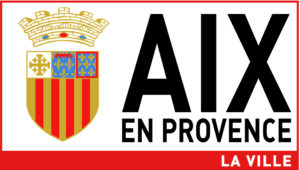The place of digital in our societies

- 28/01/2021
- Local: 6:00 pm
Paris: 6:00 pm - Amphithéâtre de la Verrière, Cité du Livre, 8/10 rue des Allumettes, Aix-en-Provence (online)
- France
- French
- https://www.amis.monde-diplomatique.fr/La-Nuit-des-Idees-2021.html
- https://www.youtube.com/c/Aixmaville/featured
The Night of Ideas 2021 will only take place remotely, we invite you to come and meet us on the YouTube pages of :
- The deconomists (live at 10:00 am and delayed at 6:00 pm)
- Aix ma Ville
- Friends of the diplomatic world
This year, we will examine the place of digital technology in our societies, in terms of social relations or the exercise of work; while our modernity is characterized by an ever-increasing process of extending our access to the world, the theme poses philosophically the problem of the "right distance" to beings and things.
In Aix en Provence we will explore this theme in 3 aspects:
- The social consequences of digital technology with Paul Bouffartigue,
- Digital and working with Claude Paraponaris,
- Digital and artistic expression with Mathieu Vabre.
The digital society? Between nightmares and hopes
The health crisis associated with the COVID-19 pandemic has 'boosted' the digitalisation of our lives and the dehumanisation of our societies. With the imperative of 'social distancing' gestures, all human activities - from work, to shopping, to accessing public services and education - have been encouraged to be carried out 'remotely': at the cost of what 'social fractures' and what changes in the social bond would a hyper-connected society bring?
Paul Bouffartigue, sociologist, Emeritus Director of Research at the CNRS
Work and technique: a question of meaning.
Technique has always been for humans the means to put themselves in continuity with life. Although work has always used technique, it has often been used for non-autonomous activities and technique has been responsible for dispossessing most humans of their knowledge. Rather than reasoning in terms of the impact of technology on work, it seems more relevant to consider the situations in which technology was developed and used in order to enable workers to recover their knowledge.
Then a reflection on the meaning of the technique and the meaning of the work can begin.
Claude Paraponaris, Professor of Economics at the University of Aix-Marseille, conducts his work within several collectives such as LEST-CNRS and Ars Industrialis.
Art in the age of digital distribution.
Nearly a century after Paul Valéry's predictions in "The Conquest of Ubiquity", art is thus redistributed everywhere, disrupted in its traditional framework. The role of art in the digital age is to think of technology not as a tool, but as a culture which we can hope will be able to invent forms of critical distancing from our hyper-technological society.
Mathieu Vabre, co-director of Seconde Nature and Zinc.
The round table will be moderated by Henry Lombard, philosopher and economist.
Partners









